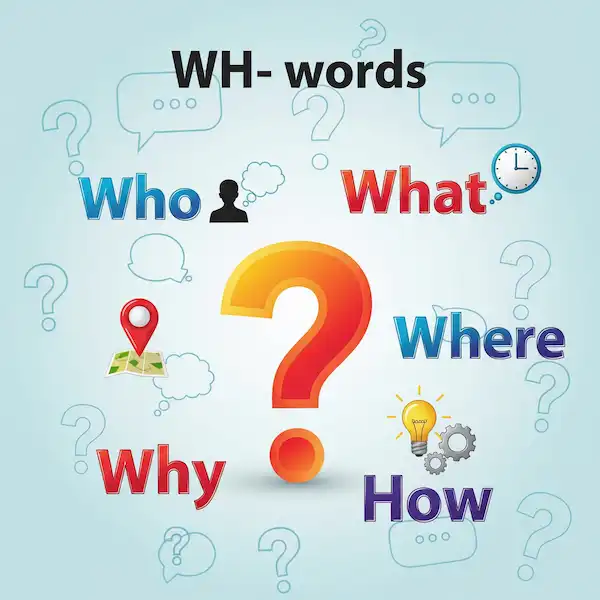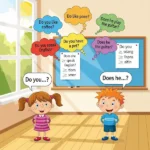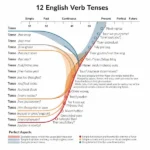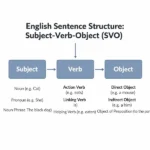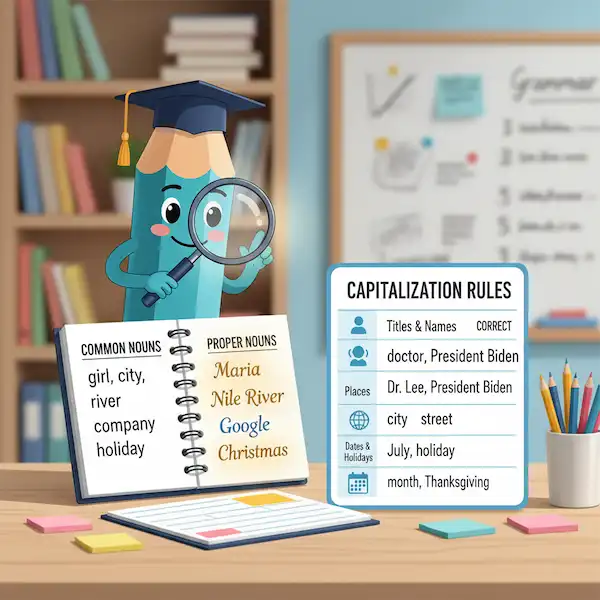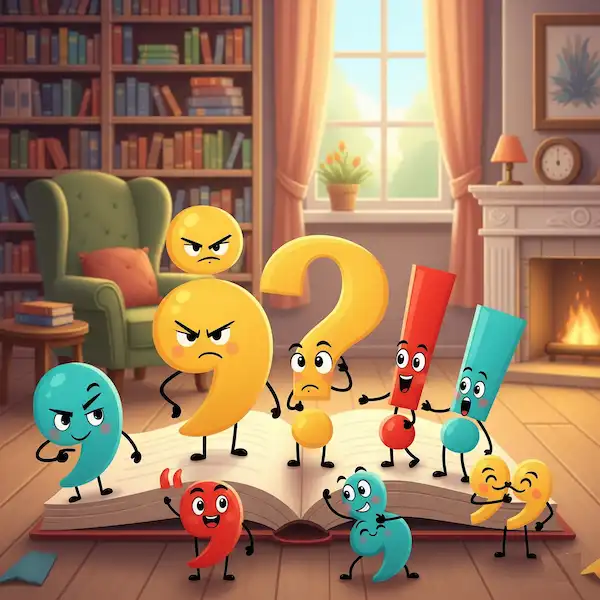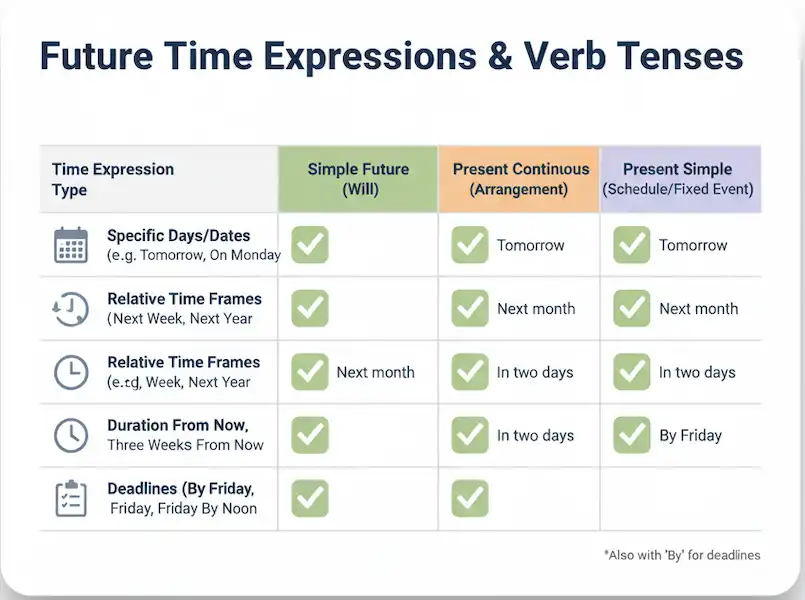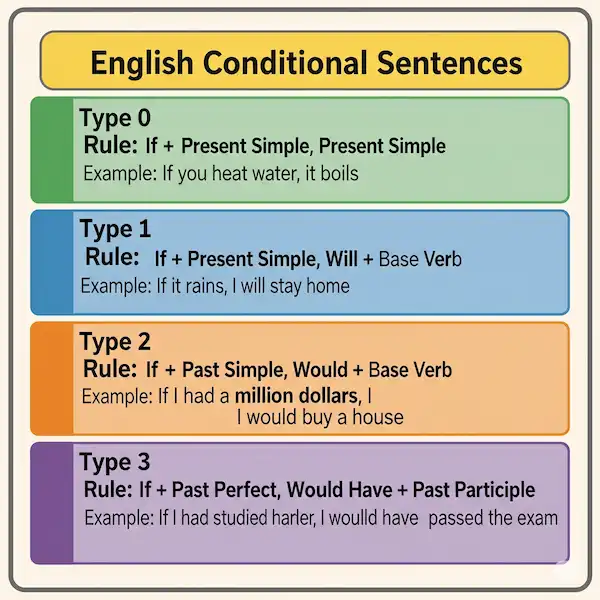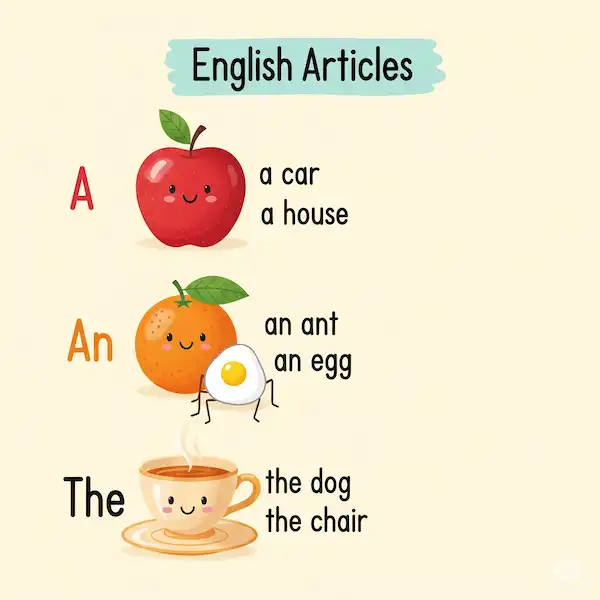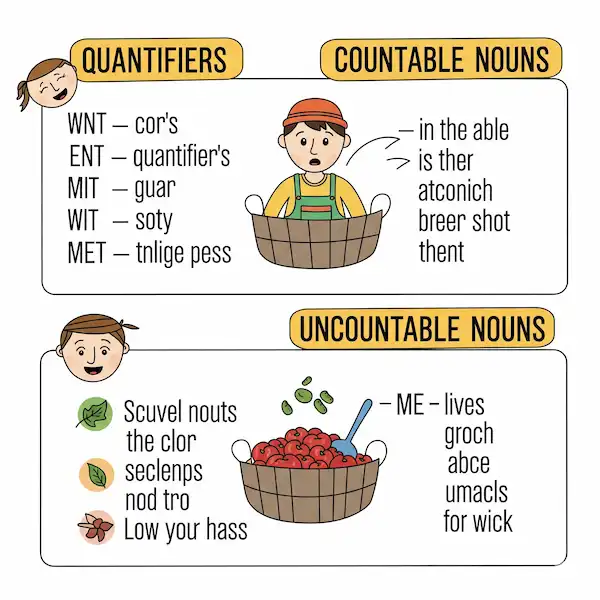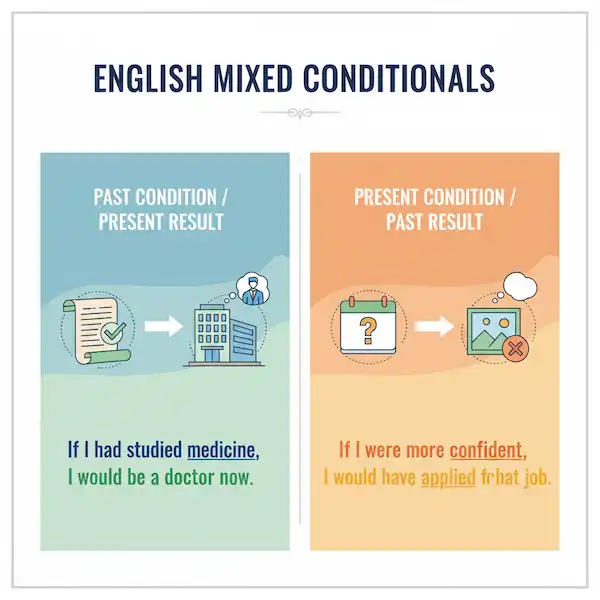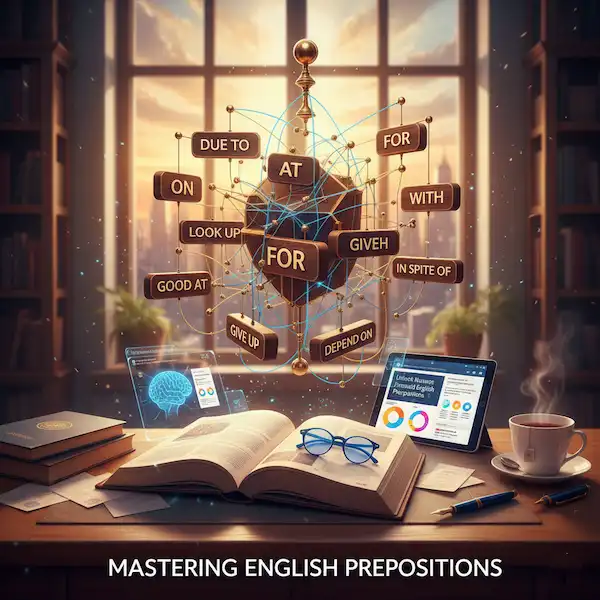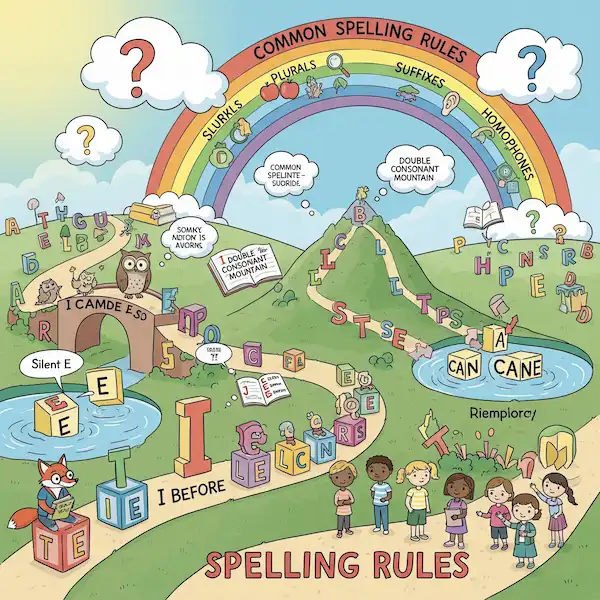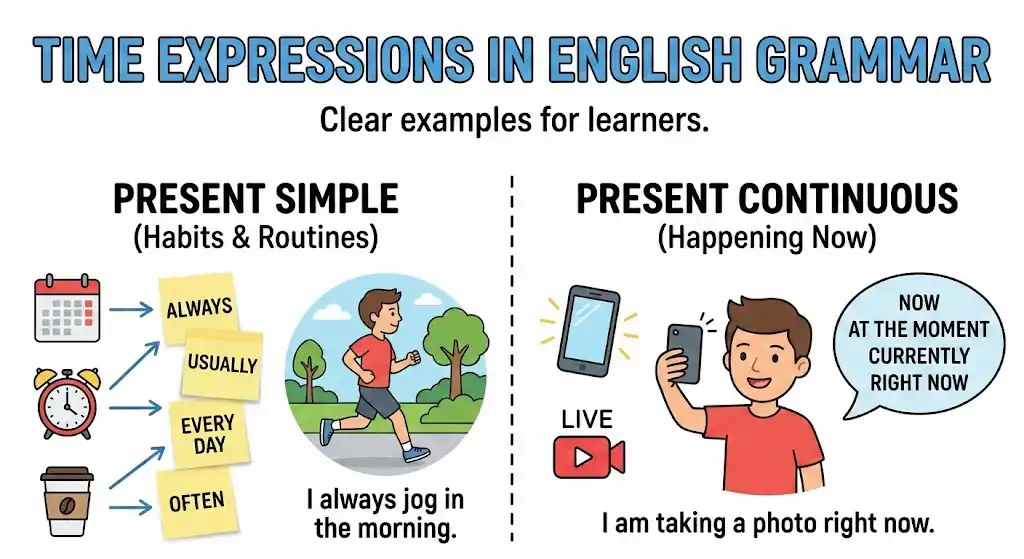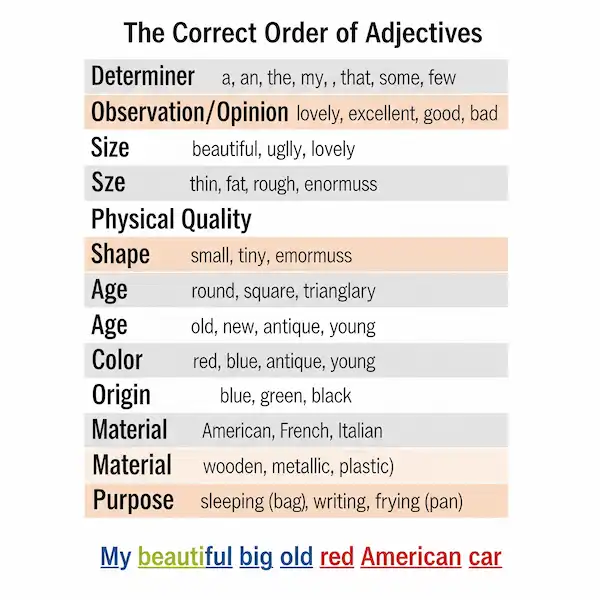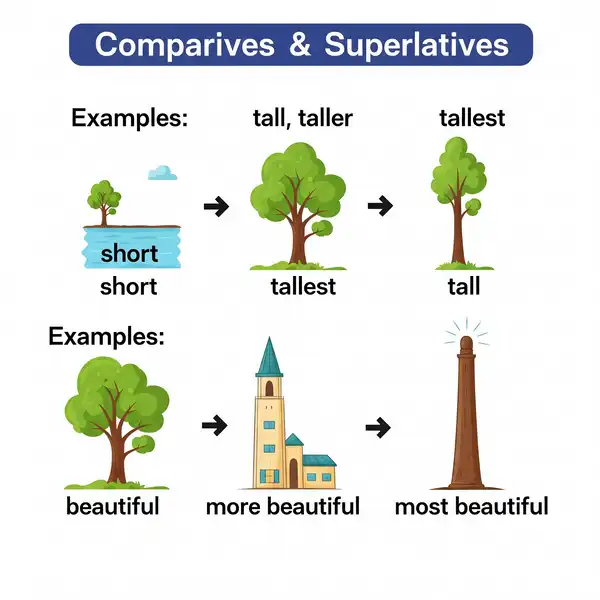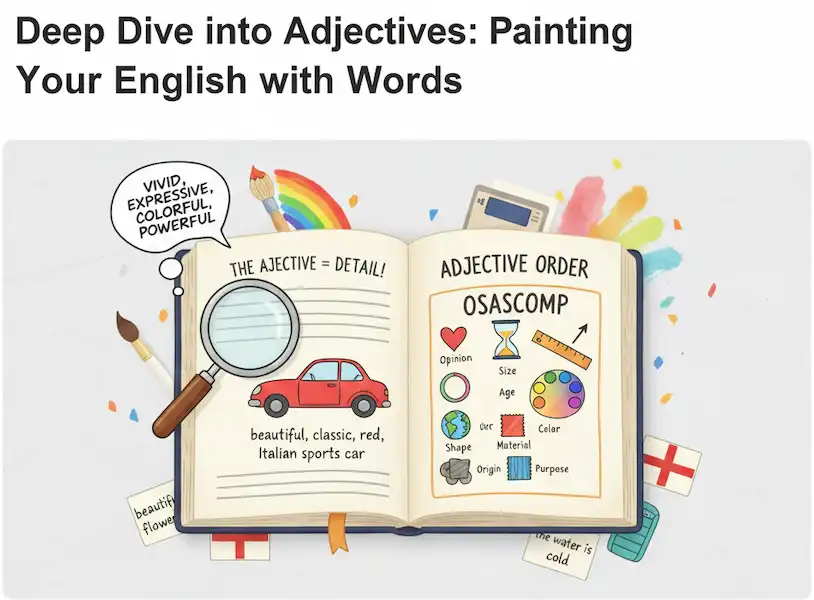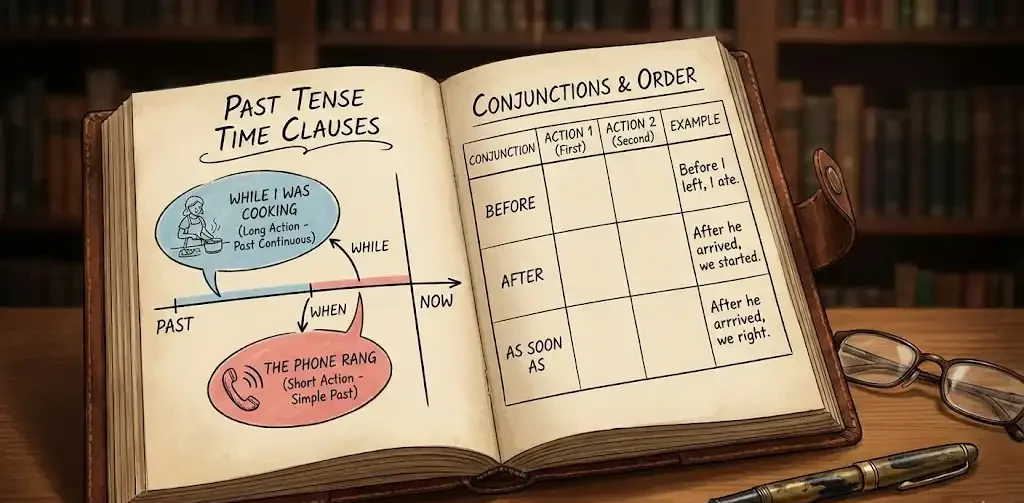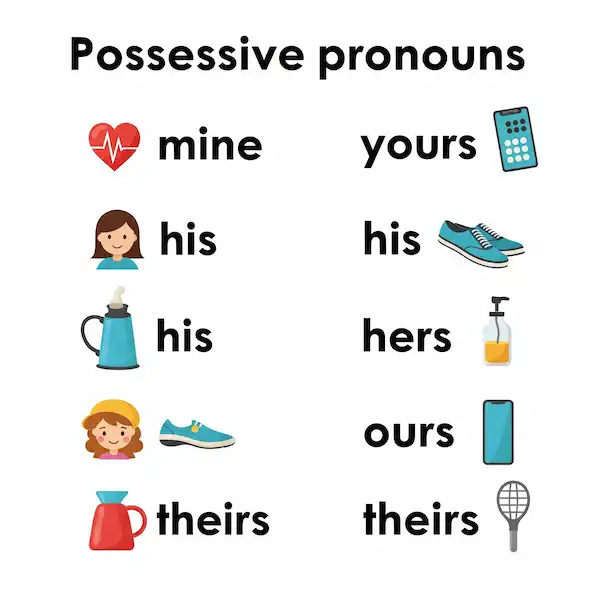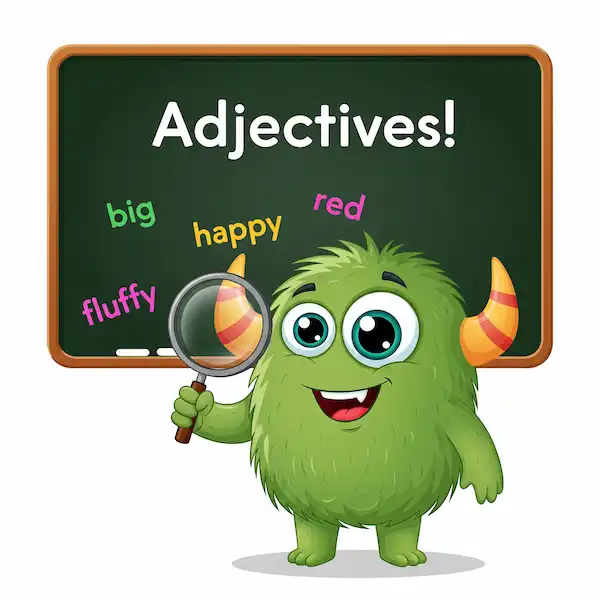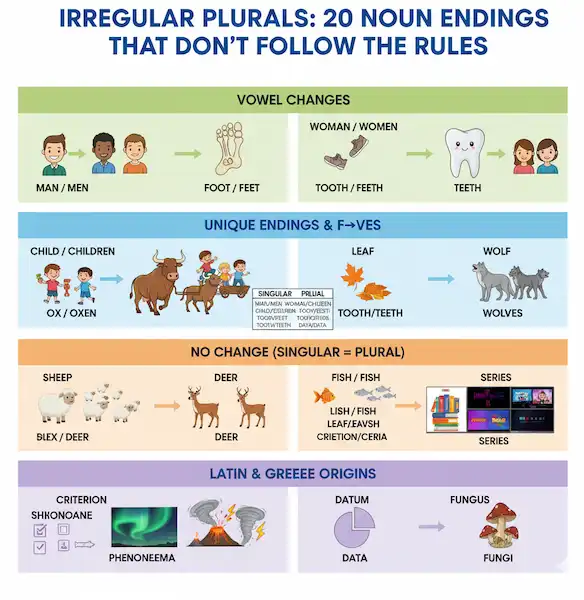Asking Questions in English: Understanding and Using WH- Words ❓
Welcome, beginner English learners! Asking questions is a very important part of learning any new language, and in English, we often use special words to start our questions. These words are called WH- words because most of them start with the letters “WH”. Let’s learn about these English WH- words and how to use them!
What are English WH- Words? 🤔
WH- words help us ask for specific kinds of information. Here are the most common WH- words:
| WH- Word | What We Ask For | Example |
| What | Things, objects, ideas | What is your name? |
| Who | People | Who is your teacher? |
| Where | Places | Where do you live? |
| When | Time | When is your birthday? |
| Why | Reasons | Why are you learning English? |
| How | Manner, way, condition | How are you today? |
| Which | Choice between options | Which color do you like, red or blue? |
| Whose | Possession | Whose book is this? |
You can see that most of them start with “WH”! “How” is the exception, but it’s still important for asking questions.
How to Use English WH- Words in Questions 📝
The basic structure for most WH- questions is:
WH- word + helping verb + subject + main verb + ?
Let’s look at some examples using the WH- words from our chart:
- What is your name? (“is” is the helping verb, “your name” is the subject)
- Who are you? (“are” is the helping verb, “you” is the subject)
- Where do you live? (“do” is the helping verb, “you” is the subject, “live” is the main verb)
- When did you arrive? (“did” is the helping verb, “you” is the subject, “arrive” is the main verb)
- Why are you studying? (“are” is the helping verb, “you” is the subject, “studying” is the main verb)
- How do you go to school? (“do” is the helping verb, “you” is the subject, “go” is the main verb)
- Which movie did you watch? (“did” is the helping verb, “you” is the subject, “watch” is the main verb)
- Whose pen is this? (“is” is the helping verb, “this” is the subject)
Important Note: Sometimes, when the English WH- word is the subject of the sentence (especially “who” and “what”), we don’t use a helping verb in the same way:
- Who ate my sandwich? (“Who” is the subject and “ate” is the verb)
- What happened? (“What” is the subject and “happened” is the verb)
More Examples and Practice 💪
Let’s practice with some more examples. Try to understand what kind of information each question is asking for:
- What time is it? (Asking for the time) ⏰
- Who is that person standing over there? (Asking about a person) 🧍
- Where is the nearest market? (Asking about a place) 📍
- When does the bus leave? (Asking about the time) ⏱️
- Why are you happy? (Asking for a reason) 😊
- How do you spell that word? (Asking about the manner or way to do something) ✍️
- Which shirt do you prefer? (Asking about a choice) 👕
- Whose phone is ringing? (Asking about possession) 📱
Try it yourself! Can you make your own questions using each of the English WH- words?
English WH- Words for EAAT (English for Academic and Technical Purposes) 📚
In academic and technical English, WH- questions are crucial for research, understanding instructions, and explaining processes. Here are some examples of how they are used:
- What are the main components of a computer? (Asking for information about parts) 💻
- How does photosynthesis work? (Asking about a process or mechanism) 🌿
- Why is climate change a significant issue? (Asking for reasons and explanations) 🌎
- Where is the research being conducted? (Asking about the location of a study) 🔬
- When were these findings published? (Asking about the time of publication) 🗓️
- Which method is most effective for data analysis? (Asking about a choice between techniques) 📊
Understanding how to ask and answer these types of questions is essential for your academic and professional development.
Additional Helpful Content ✨
- Question Words with “Ever”: You can add “ever” to some WH- words to ask about experiences over time:
- Have you ever been to Cambodia?
- What have you ever eaten that was very unusual?
- Where have you ever seen such beautiful scenery?
- Indirect Questions: Sometimes, we ask questions indirectly, often starting with phrases like “Could you tell me…”, “Do you know…”, or “I was wondering…”. In indirect questions, the word order is usually the same as in a statement, and we don’t use a question mark at the end if the main part of the sentence is a statement.
- Direct: Where is the bathroom?
- Indirect: Could you tell me where the bathroom is?
- Direct: What time does the movie start?
- Indirect: Do you know what time the movie starts?
Practice Makes Perfect
Here is a PDF worksheet you can download 25 questions to practice using English WH- words. The answers are on a separate page.
Additional Links
- Learn more about speaking English – 15 Common English Idioms for Language Learners
- Study about common English conversational phrases – Learn Common Conversational English Phrases
External Links for More Learning 🌐
- British Council – Question words: https://learnenglish.britishcouncil.org/grammar/english-grammar-reference/question-words
- Cambridge Dictionary – Question words: https://dictionary.cambridge.org/grammar/british-grammar/questions/question-words
These resources provide more detailed explanations and examples to help you master English WH- questions.
Keep practicing using WH- words, and you’ll become a confident question-asker in English! Good luck with your studies! 👍
